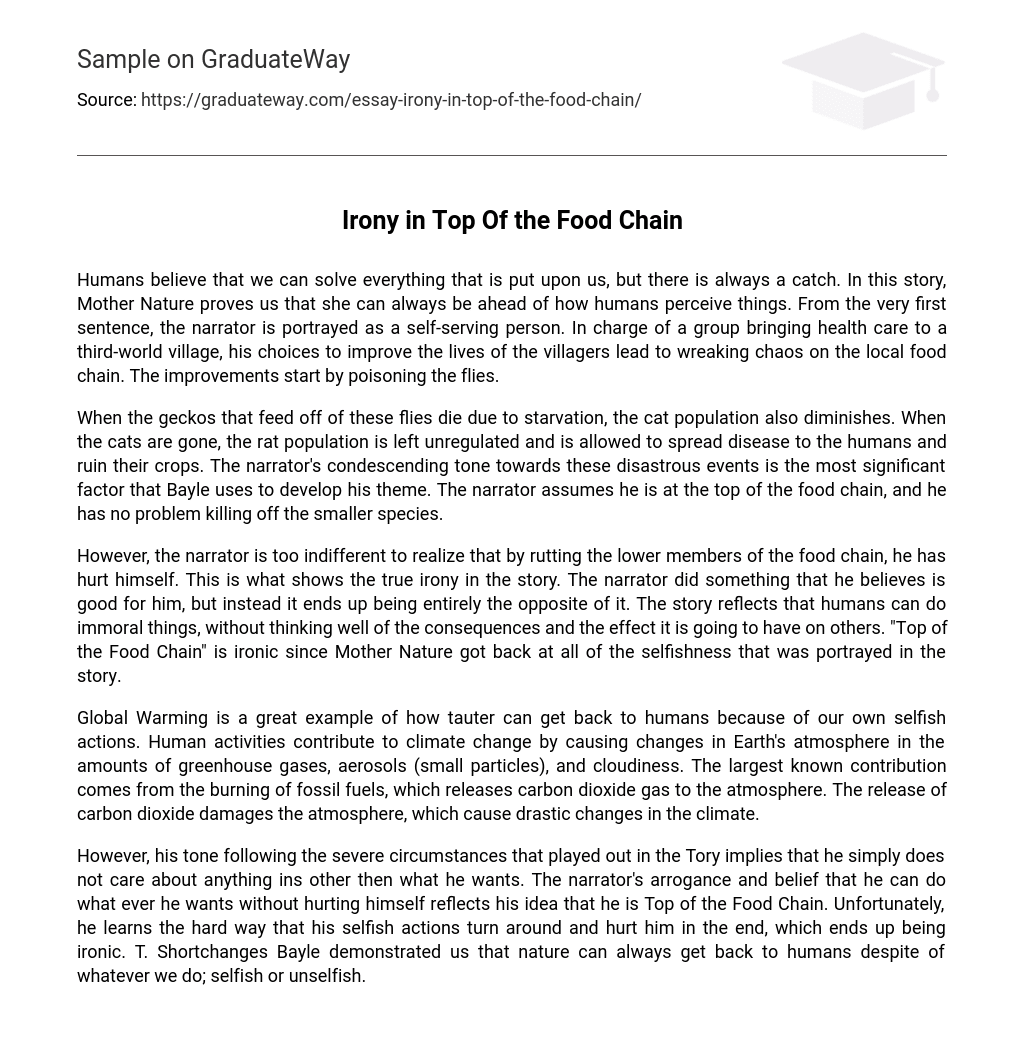Humans have an inherent belief in our ability to solve any challenges we face. However, Mother Nature continually demonstrates her ability to surpass human understanding. This story highlights the narrator’s self-serving nature, as they are responsible for providing healthcare to a third-world village. Their actions, intended to enhance the villagers’ lives, ultimately wreak havoc on the local food chain. The process begins with poisoning the flies as part of their efforts to bring improvements.
The geckos, which rely on the flies as their food source, die from starvation. As a result, the cat population decreases. With the absence of cats, the rat population is no longer controlled and they begin spreading disease to humans and causing crop damage. Bayle’s theme is developed through the narrator’s patronizing tone towards these catastrophic events. The narrator perceives themselves as superior in the food chain and easily eliminates the smaller species without hesitation.
However, the narrator’s indifference prevents him from realizing that his actions towards the lower members of the food chain have ultimately harmed himself. This serves as the true irony of the story – the narrator’s belief that his behavior is beneficial to him, but it ultimately proves to be completely opposite. The story highlights the capacity for humans to engage in immoral actions without considering the consequences or their impact on others. The irony in “Top of the Food Chain” arises from Mother Nature’s retaliation against the selfishness depicted throughout the story.
Global Warming is a clear demonstration of how human activities negatively impact Earth’s atmosphere. The emission of greenhouse gases, aerosols, and cloudiness are among the harmful consequences caused by these actions. The combustion of fossil fuels worsens this issue as it releases carbon dioxide into the atmosphere, leading to climate changes that damage the atmosphere.
Despite the severe circumstances in the Tory, the narrator’s tone suggests a lack of concern for anything other than his own desires. His arrogance leads him to believe that he is superior and can act without consequence. However, he soon realizes the irony of his actions as they ultimately come back to harm him. T. Shortchanges Bayle teaches us that nature can always retaliate against humans, regardless of their selfishness or selflessness.





